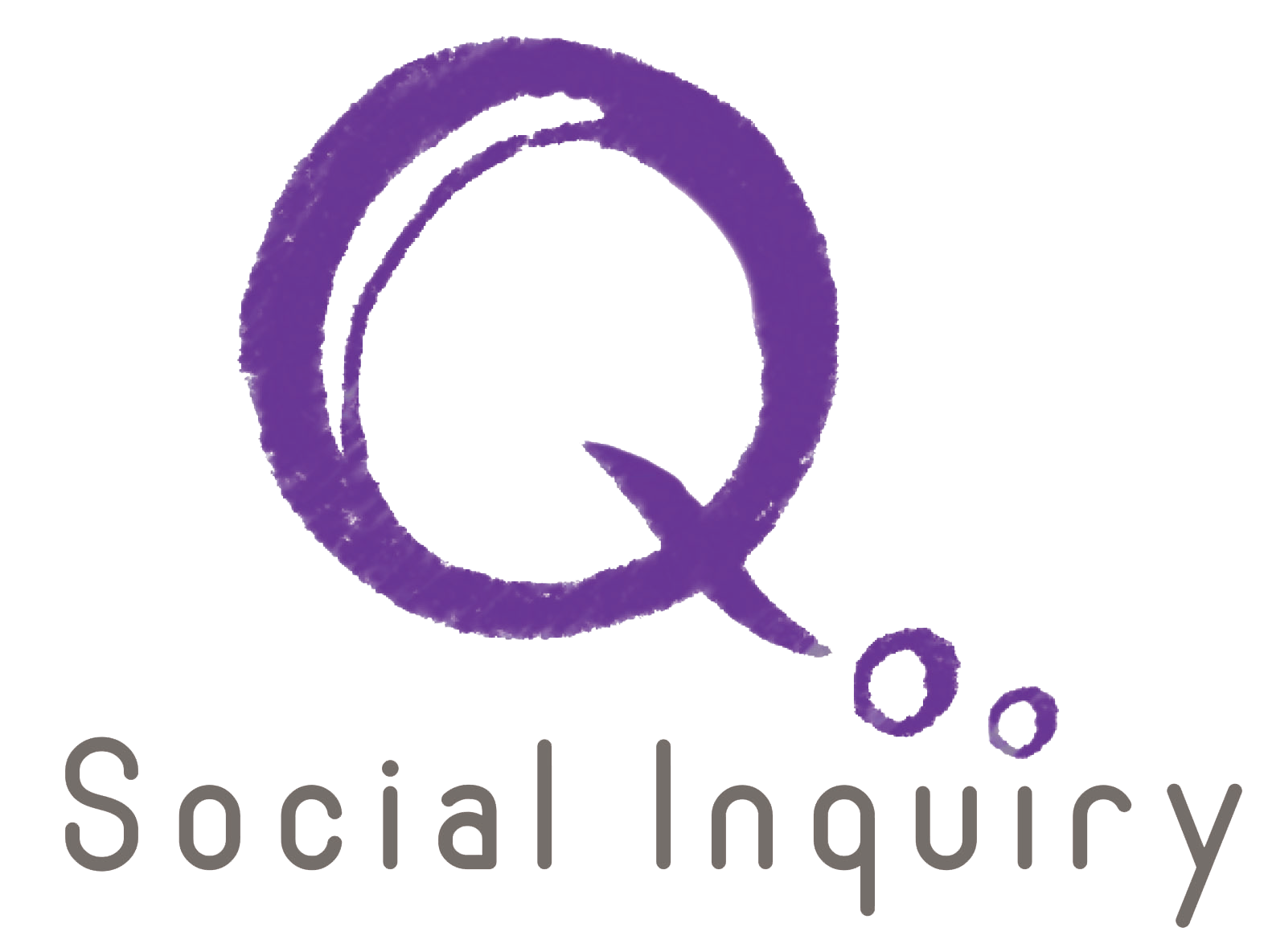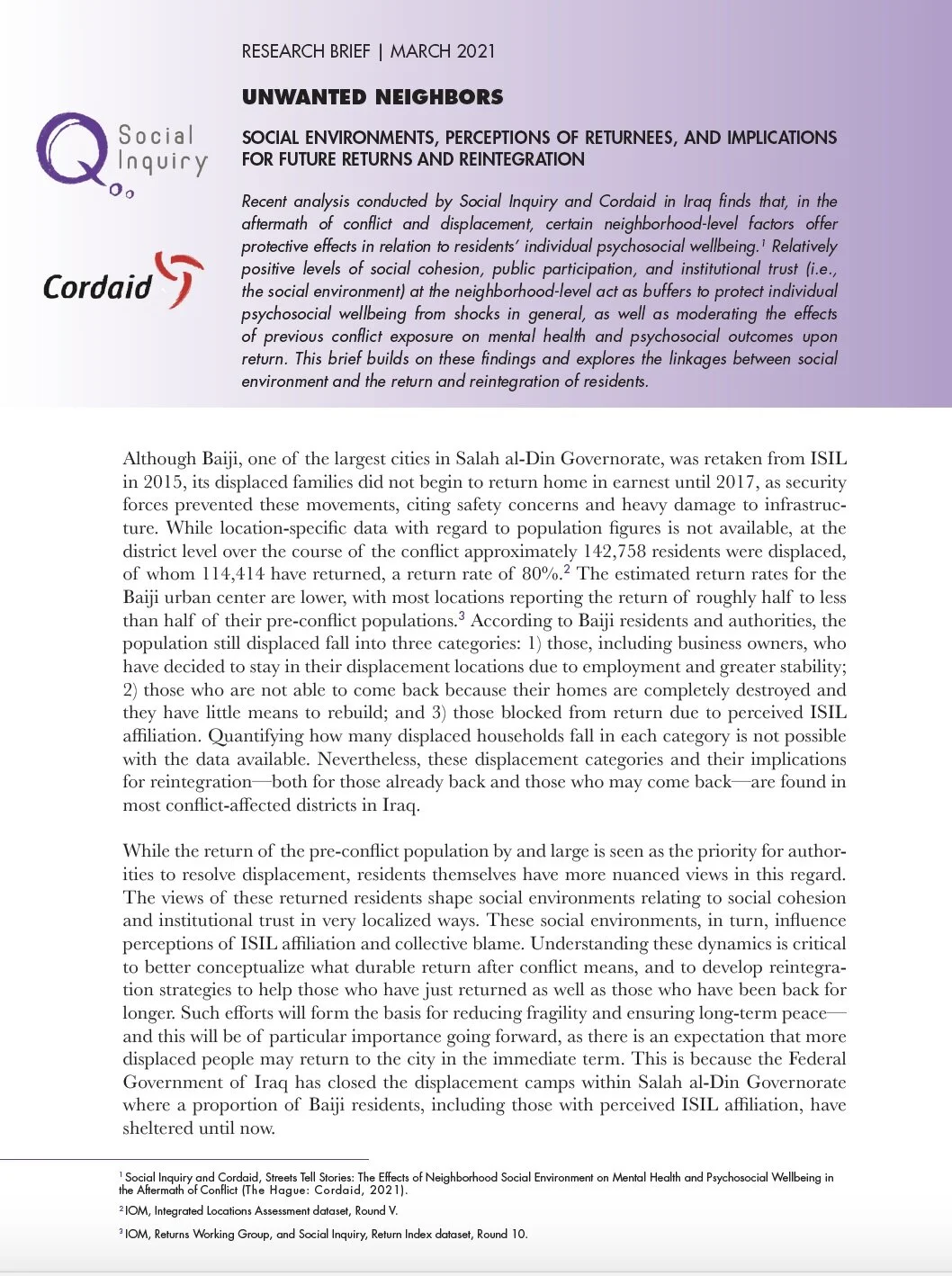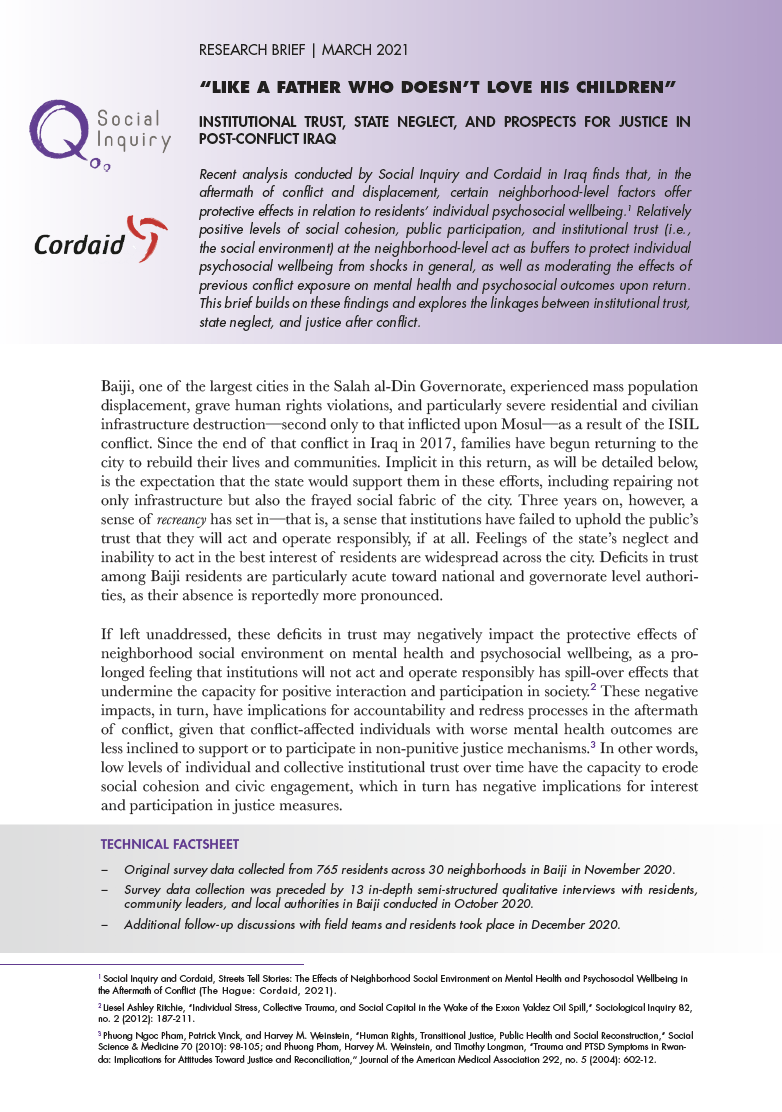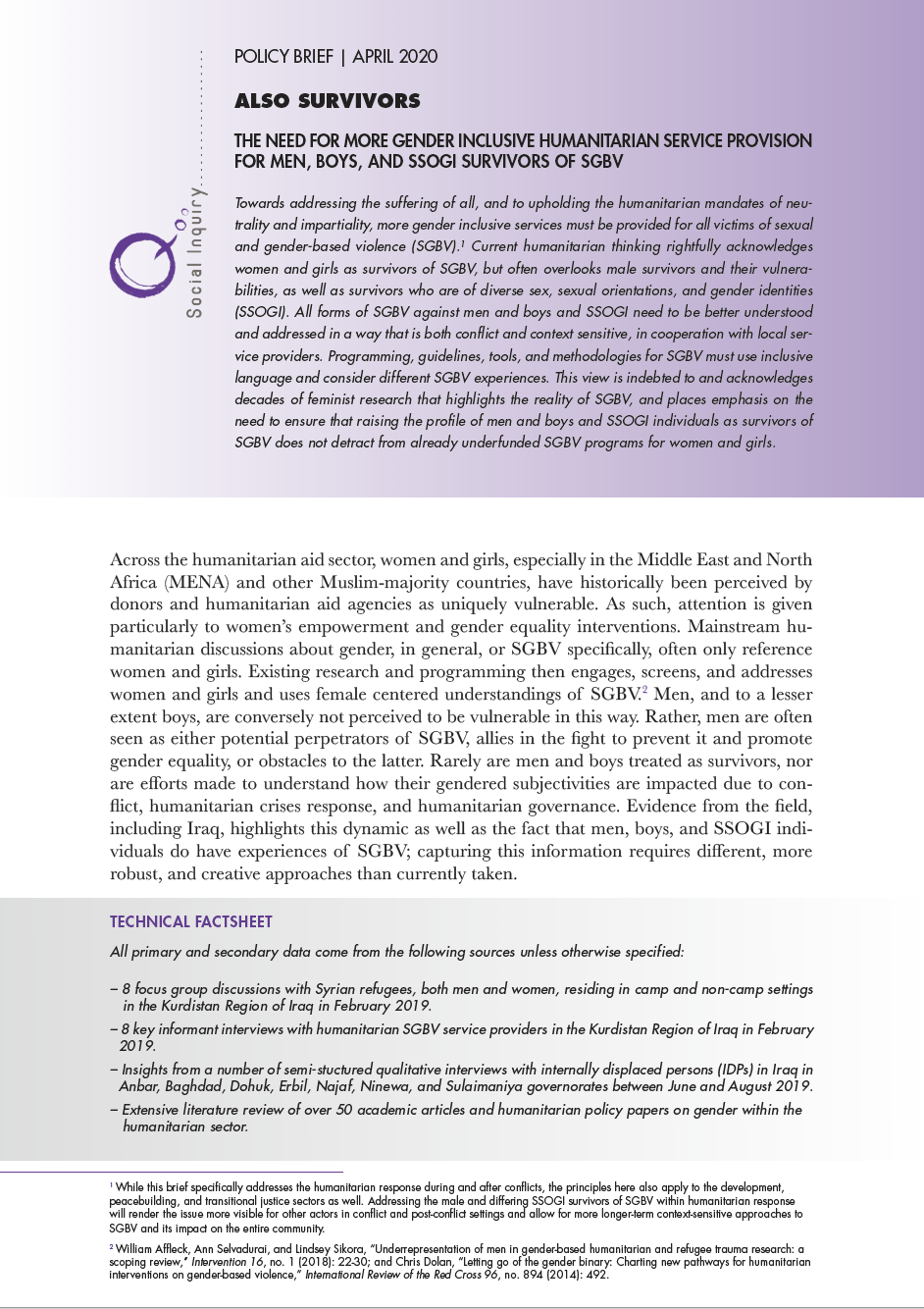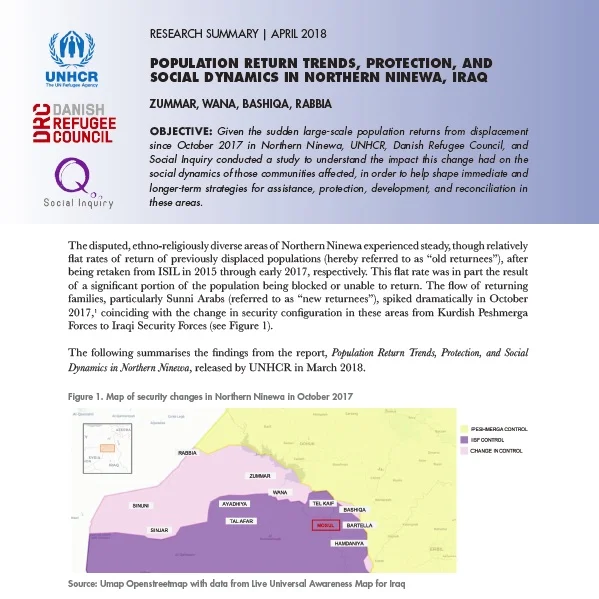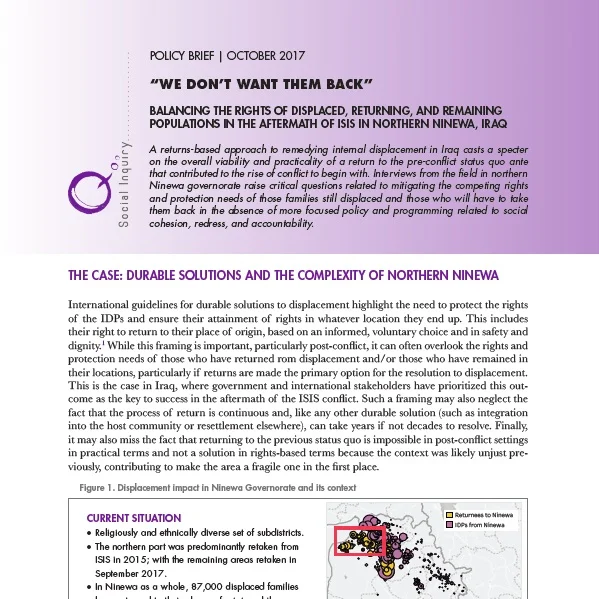The rural districts in the north-center and south of Iraq provide a useful entry point to analyze the decline of the agriculture sector due to conflict, economic, and environmental factors in the country. Utilizing recent microdata, this brief seeks to describe this phenomenon in more detail and the impacts and implications of this recession on rural communities. This then lays the basis to articulate key considerations, rooted in the local and national dynamics found in rural Iraq, to transition to a more sustainable agriculture sector.
Read MoreThis brief explores the ways in which residents’ perceptions of the returns process for the displaced influence neighborhood dynamics and views on ISIL affiliation and blame.
Read MoreIn exploring the linkages between institutional trust, state neglect, and justice after conflict, this brief details the ways in which low confidence in state response can degrade social cohesion and civic engagement, negatively impacting psychosocial wellbeing over time and increasing apathy toward change processes, including those linked to accountability and redress.
Read MoreExamination of the ways in which men, boys, and individuals who are of diverse sex, sexual orientations, and gender identities (SSOGI) experience sexual and gender-based violence (SGBV) in conflict and post-conflict settings and the means by which to establish more inclusive humanitarian service provision that addresses their needs without undercutting dedicated support to women and girl survivors.
Read MoreCase study on the impact of conflict on the political economy of Sinjar district in Ninewa Governorate. This briefing examines changes in Sinjar’s value chains in the aftermath of ISIL and possible recovery interventions through a mapping of actors, systems, and networks in Sinjar’s agriculture, livestock, manufacturing, and retail sectors.
Read MoreUncovering the impact of sudden population returns on social dynamics in northern Ninewa to help shape immediate and longer-term strategies for assistance, protection, development, and reconciliation.
Read MoreOverview of key social, political, and security issues to be faced in post-conflict Ninewa. Understanding the complex social fabric of this governorate is critical to ensuring that reconstruction in one of the most heavily ISIS affected areas in Iraq is not simply rebuilding over shaky foundations.
Read MoreHighlighting the competing rights and protection needs of those families still displaced and those who will have to take them back, particularly in regard to those who did not flee at the “appropriate” times or who belong to the “wrong” identity group.
Read More